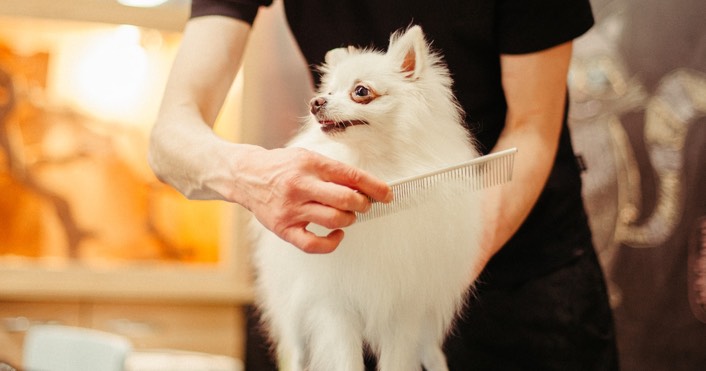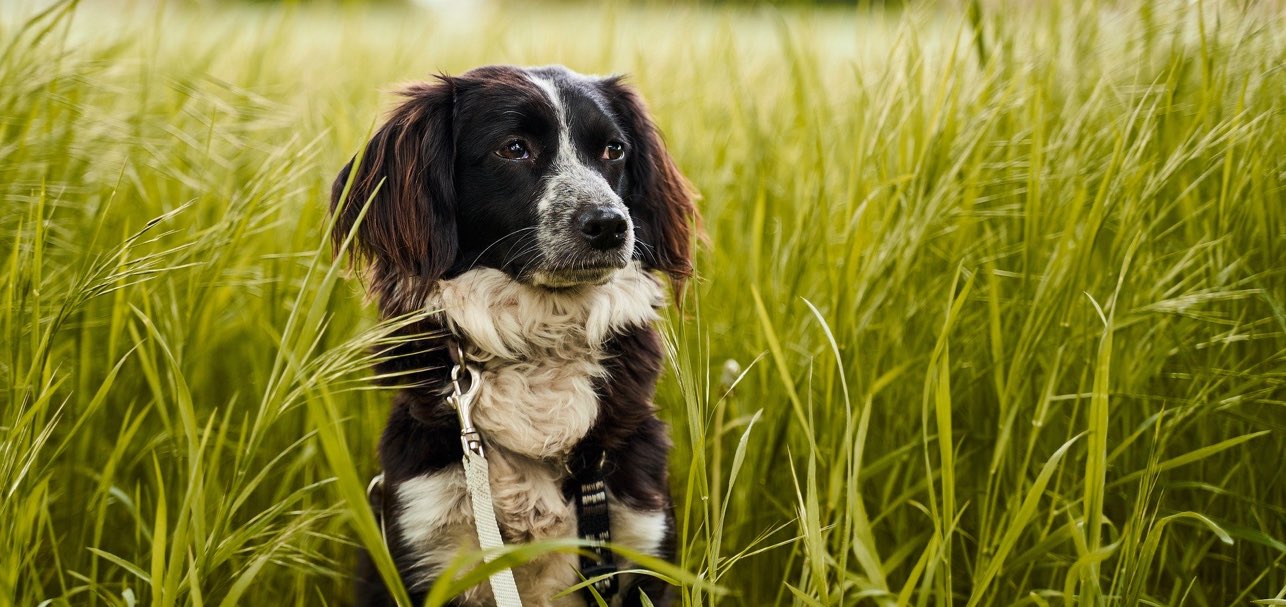How do pets get fleas?
Dogs and cats often suffer from fleas at least once during their lifetime. Fleas are easily contracted through contact with other animals infected with fleas and contact with fleas within the environment. The flea has very strong legs and can jump from host to host or easily from the environment onto the animal.
Cycle life of a flea
It is important to kill and stop fleas quickly before their life cycle can be completed and an infestation begins. A typical flea cycle can take as little as 12-14 days or even as long as 180 days. Household conditions can see a complete lifecycle last for up to 3-6 weeks.
Below are a few crucial facts regarding the infestation of fleas:
- Adult fleas can lay hundreds of eggs in as little as 2-3 days
- Flea eggs can fall off the pet and onto household furnishes and even floorboards
- Once hatched, the larvae eat the faeces of adult fleas and other debris before spinning their cocoon and pupating
- The pupa can live on the cocoon for up to a year, whilst waiting for the right conditions to emerge
What are the first signs your pet has fleas?
One of the very first and obvious signs is your pet repeatedly itching, scratching and chewing. You may also notice fleas themselves or flea dirt (flea faeces) on your dog.
If your dog is constantly itching and scratching this can lead to reddened and irritated skin and on some occasions it can also lead to hair loss.
Although, many dog breeds suffer from itchy and flaky skin and this can be due to other causes such as allergies. Treating your pet constantly for fleas will help prevent them from catching them.
Some dogs also show no symptoms at all and this can be difficult to detect. As well as making your pet uncomfortable, fleas can also transmit other known parasites such as tapeworm to your dog.
Can fleas harm your pet?
The short answer is yes. Fleas can cause serious disease in dogs and cats, such as flea allergy ( FAD) and some more serious cases, it can cause anaemia. Fleas also carry tapeworm larvae which can cause other health issues if your pet was to ingest their fleas whilst grooming themselves.
My pet has fleas, what do I do?
Firstly, you need to take them to the vets for a check-up and discuss possible flea treatments for your pet and any other pets in the household. You will also need to treat the environment of the home to kill off any possible infestations. There are lots of great products available in pet stores as well as online and your local vets.
What flea treatments are available?
There are numerous products available to help treat and prevent your pets from fleas. Some products also offer protection against other parasites that can also harm your pet. The treatment length depends on the product chosen as there are different lengths of intervals between various treatments. You must ensure you seek professional guidance on the product, quantity and application before treating your pet. Always ensure you read the manufacturing guidelines.


Natural ways to treat fleas
As well as using treatments available online there are many natural and effective ways to treat your pets fleas through a more homoeopathic approach.
Essential oil flea spray
Some essential oils make excellent flea repellents for pets. Peppermint, tea-tree, rosemary, eucalyptus and citronella and help naturally repel fleas. Simply dilute a few drops of your chosen essential oil with water and spray directly on your dog.
Apple Cider Vinegar spray
Using apple cider vinegar not only treats fleas but can help to restore your pets pH levels. Simply, dilute 6 cups of apple cider vinegar and 4 cups of water and spray directly onto your pet. You must ensure to avoid their eyes when spraying onto their fur.
Lemon baths
Making a lemon bath is simple and can help your pet smell clean and fresh as well as flea free. Add half a cup of freshly squeezed lemon juice into two cups of water along with a squeeze of your normal pet shampoo for a more natural way to treat fleas.
How often should I treat my pet for fleas?
Treatment plans vary with different products used. Some products treat other parasites and therefore need fewer applications. Professional advice should always be given when applying treatments as well as referring to the manufacturing guidelines.
How can I treat my home for fleas?
Fleas can survive for months and even up to a year on untreated furnishings. If you suspect your pet has fleas, then you must treat the home as well. Hoover and clean all areas of the home and wash furnishings, carpets, curtains, rugs etc on a high temp wash and treat with flea treatment for home furnishings.
Hoover bags must be disposed of correctly and not kept in the hoover as the fleas can live in the hoover bag and infest and grow in these conditions. Regular cleaning and treatment of both the pet and furnishings will help prevent a re-infestation.
Natural remedies to treat fleas in the home
The effectiveness of salt
Sprinkling salt onto your soft furnishings and carpet before vacuuming the next day will help dehydrate the flea eggs and kill the fleas. Your pets mustn't be allowed access to the room when salt is applied to the area to prevent them from ingesting. You must also exercise caution when using your hoover as it can cause rust if not properly cleaned out afterwards.
The effectiveness of baking soda
As with salt, using baking soda can help penetrate the fleas and their eggs by dehydrating at the source. Leave the baking soda on overnight and hoover the next morning. You must ensure your pets are not left in the room where the baking soda is used to prevent them from ingesting the product.
How to prevent fleas on your pet
Prevention is relatively easy and involves treating your pet regularly. Keep their coat and bedding clean and give them regular brushes.
How to prevent fleas in the home
This starts by keeping your pet protected by using treatments and keeping your home clean. Regular hoovering and steaming can kill off parasites and debris. Pay special attention to where your pet lives within the home and steam the area more frequently.
Wash their bedding on a high temp wash and clean their toys and food and water bowls regularly.




